Disclosure: Meeple Mountain received a free copy of this product in exchange for an honest, unbiased review. This review is not intended to be an endorsement.
If there’s dice in a game, you know I’m at least gonna listen to the pitch. Then if you tell me there’s also tile laying, you’ll have my full attention—which is why I’m here telling you about Dice Manor from Arcane Wonders.
Dice Manor is a lightweight dice game in which players attempt to build out their best home, room by room. Over the course of 4 rounds players will roll their dice and use the results to bid on each of 6 available rooms that round, compete for advertising dollars, or give tours of their manor to potential customers. At the end of the game, players earn points for those tours, for having diversity in the types of rooms in the house, and for having the most paint choices.
Can you wind up with the most valuable home after all is said and done? Let’s take a look at a sample round to see how to play.
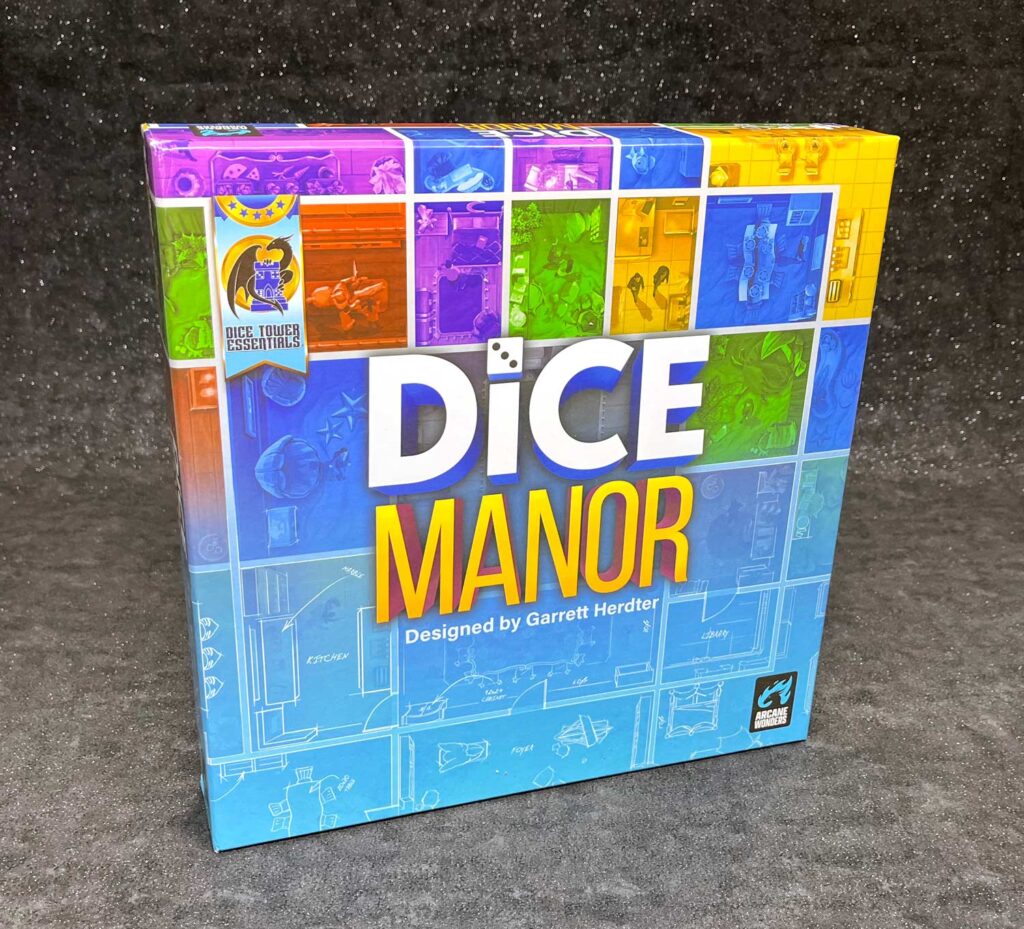
Dice Manor Game Play Overview
Dice Manor uses a dice rolling system similar to that of Las Vegas or Dice Age: The Hunt: roll all your dice, then group them by pip value. Once you’ve got your groups, then you select a single value (all the 2s, all the 3s, etc.) and use them in one of several ways: bidding on rooms, bidding on advertising, and home tours.
The initial bid for rooms or advertising sets the base, and each subsequent player must outbid the previous player to claim the top spot. It’s acceptable to be in second place though, which allows you to set yourself up for taking first place on a subsequent turn.
Let’s take a look at the main spots for your dice.
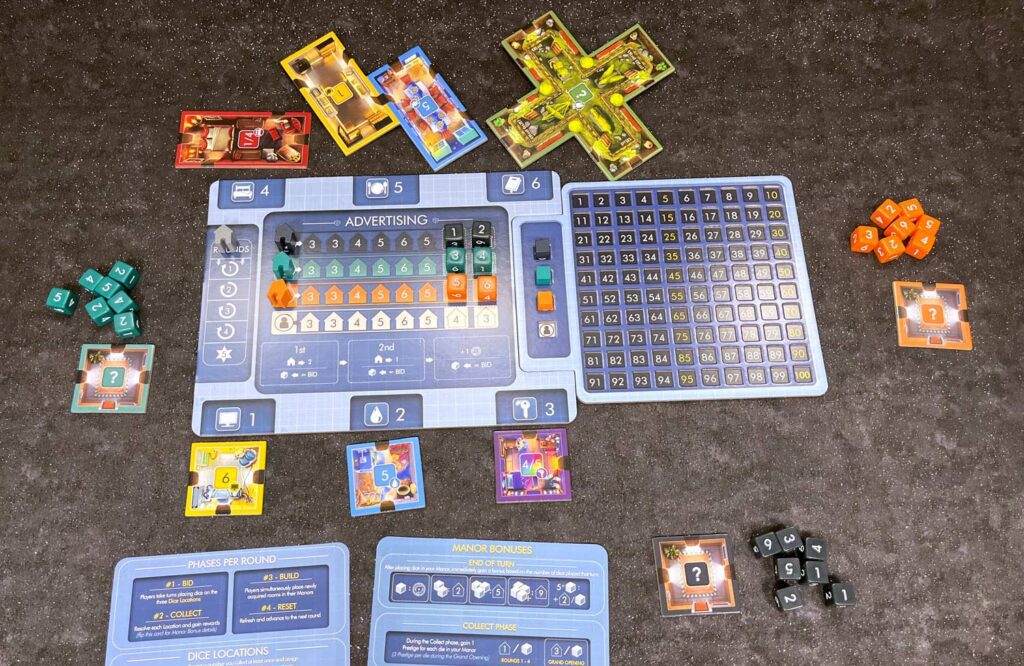
Bidding on a Room
There are always six rooms set out each round: three “basic” rooms, and three “advanced” rooms. Rooms are at the heart of the game, so let’s take a minute to talk about them. Each room is either a color (blur, red, yellow, green, or “wild”), each room has a type (dining room, bedroom, etc.), and each room has one or more doors. Rooms are either square (the basic rooms) or polyomino-shaped (the advanced rooms). Most importantly, each room tile has either a single number, a split number (3/5), or a ?, which dictates which die faces can be placed on them.
Players may place as many dice of their selected value on the room matching the value. If you really want that advanced room in slot four, you need to place dice with a value of 4.
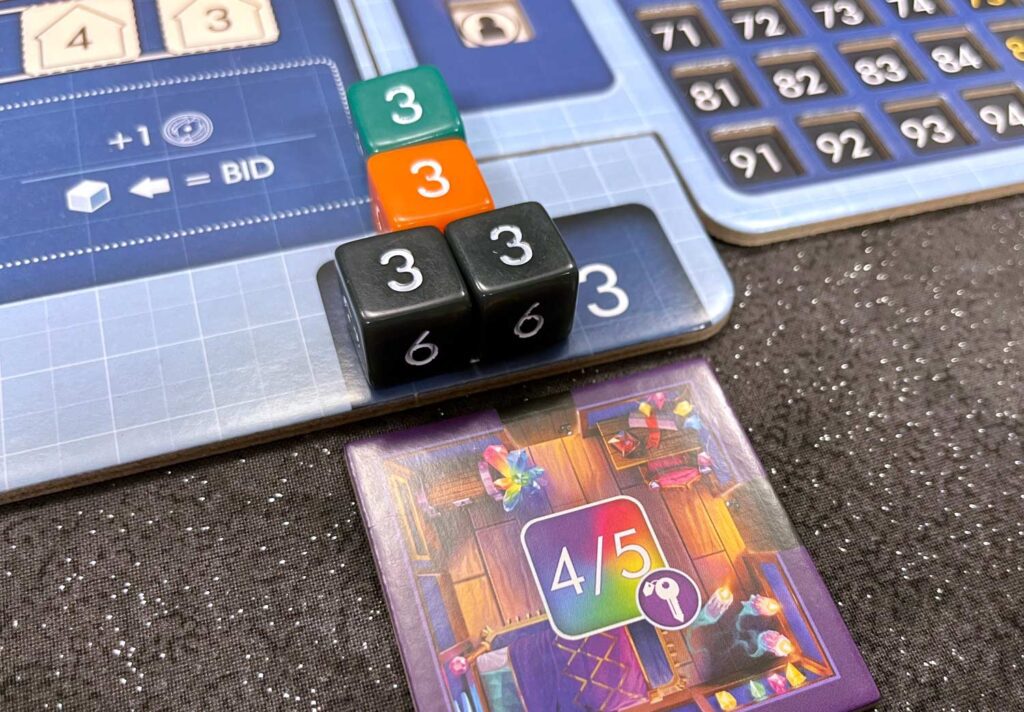
Bidding on Advertising
Winning at advertising not only earns you points, but can also unlock two additional dice that give you extra leverage and bidding power. When placing dice on the advertising area, pick any number and place as many dice of that value as you wish. You can add to this area over the course of the round, but all future dice must match that number.
Giving Tours
Giving tours through your home is a great way to earn points, as well as Inspiration tokens (which allow you to bump the value of a given die face up or down by 1). Over the course of the game, your home will grow in size, and as it does so, the amount of points you can earn by giving tours can increase.
On each turn, you’ll place as many of a single die face as possible into the rooms of your home, beginning either the front door, or a room which already has a placed die. The more dice you’re able to place in a single turn, the more points you’ll earn (two points for four dice, and eleven if you’re able to place five dice on a single turn).
When placing dice into your manor, you’ll earn rewards immediately.
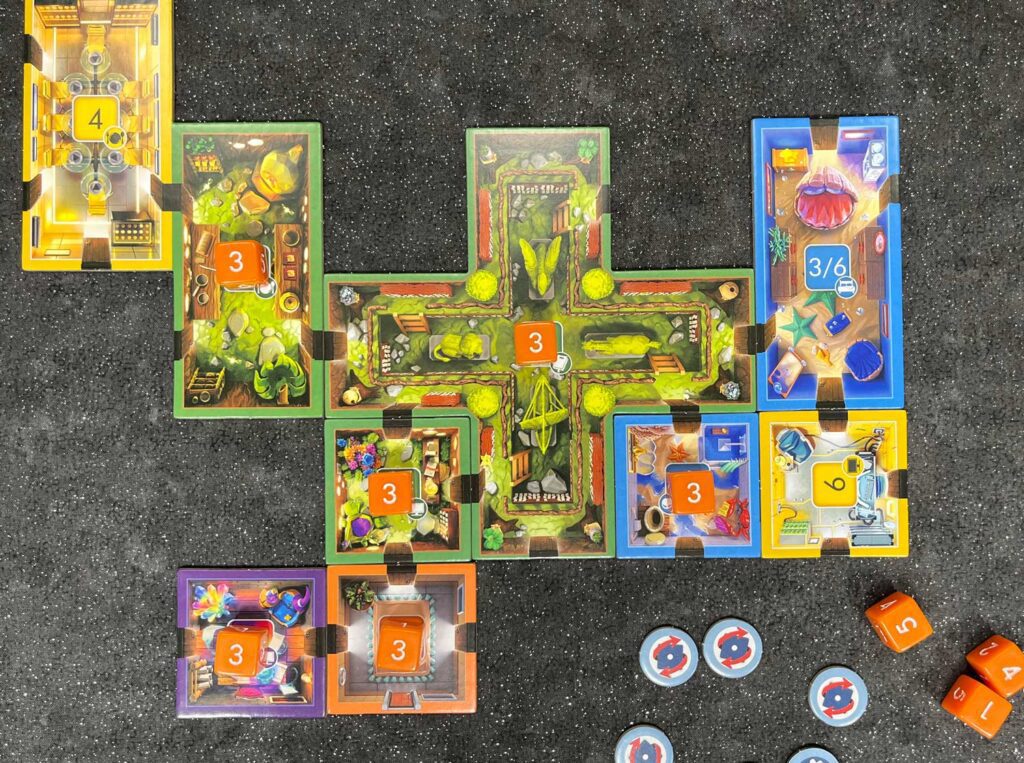
At the End of a Round
After all dice have been placed, players determine the winner in each of the room bids, and the advertising area.
The winning player for each room must place that room into their manor. The only restriction is that doors must connect to doors, or be left open in order to connect to future rooms. Any other players earn Inspiration tokens for their losing bids.
The player who placed the largest bid in the advertising area moves their player piece forward two spaces, earning points for each space they pass (or land one). Second place moves their piece forward one (also scoring points). Then each player moves their “extra dice” one space for each die they used in their advertising bid.
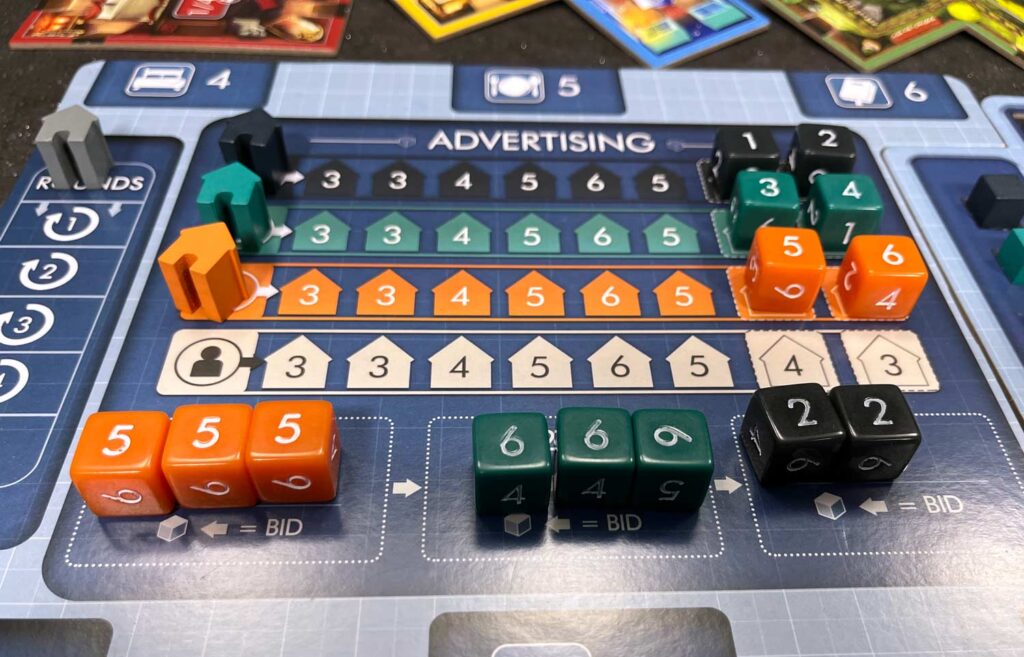
All players collect their dice, and lay out new room tiles.
At the End of the Game
After the fourth round players, perform a grand tour of their home, in which they continue to roll and place their dice, until all dice have been placed into their manor (or wind up as unhappy guests waiting outside).
After adding up their points from placing guests, players determine their room diversity, receiving more points the more different types of rooms they have. Then players determine who has the largest number of each color room.
Add up all the points, and the player with the most points wins the game.
Dice Manor Final Thoughts
The first question most people might ask upon reading a review? “Is this game fun”, to which I can say “yes it is.” Dice Manor is a fun time. For most people looking to pick up a game, that might be enough.
But there’s more to it than that, though. Dice Manor does some interesting things, but I’m not sure it’s enough to merit a recommendation to buy.
Let’s start with the production; Arcane Wonders do a great job producing games. Everything in the box is quality: the dice, the tiles, the molded insert, the rulebook—it’s all great. The artwork is well executed and full of color, if a bit boring. The rulebook really shines; it’s really well laid out with plenty of space, lots of examples, and even offers some optional rules at the end. The player aids are double sided and provide lots of useful information.
But aside from all of that, the gameplay feels uninspired. It borrows mechanisms from other games, but those games do them better (Las Vegas or Grand Austria Hotel for the dice grouping for example). Dice Manor asks you to build up a manor, but you have so few turns in which to do that, you feel hamstrung by the bidding system. If the dice don’t roll your way, you might not pick up enough rooms to allow yourself to get those high point tours.
In one game I tried to focus on winning the advertising bid early on so that I could get an extra die. But I did so at the cost of getting rooms in my manor, which meant that at the end of the game I had plenty of “guests” to take on tours, but not enough room to host them…so I actually lost points. It feels like you’re just getting your engine going in the fourth round, but then the game cuts out and you’re left coasting. I think we could benefit from a fifth round of gameplay and then do the grand tour.
But that’s not in the plans for Dice Manor. So you’ll have to ask yourself, does the game sound interesting enough as it is? For some people it might be, but for me, it doesn’t quite make the cut.


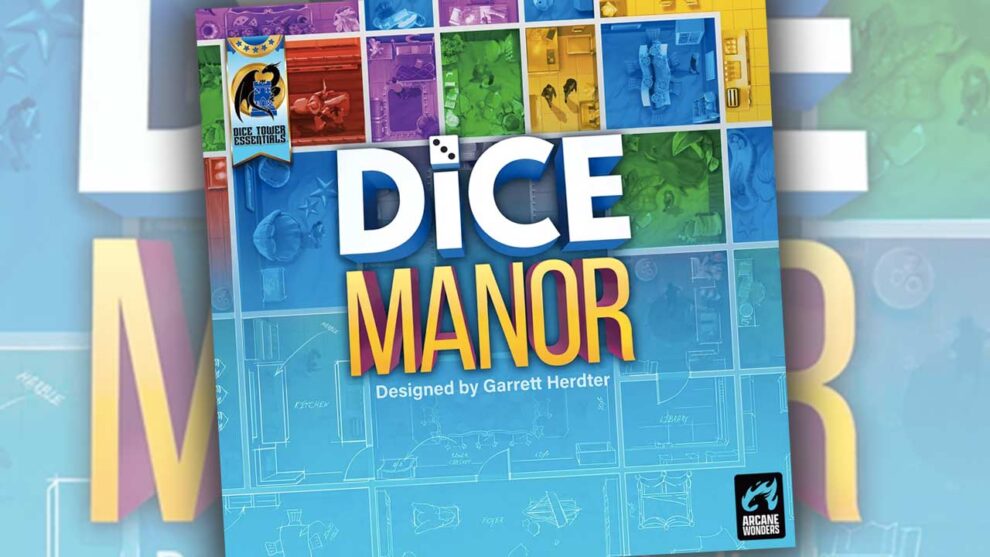



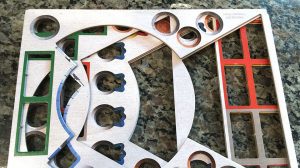





All of this sounds like someone played Floorplan and thought, “Steroids. What if I put this game on steroids?”
🙂
May have to check this one out.